Война не меняет нечестных людей ни в центре, ни на местах, зато делает их еще более циничными.
Скоро пройдет год с тех пор, как глава Днепропетровской областной военной администрации Валентин Резниченко оказался в центре коррупционного скандала, бросившего тень на ближайшее окружение главы государства
Теперь как минимум в четырех офисах страны — президента, Национального антикоррупционного бюро (НАБУ), Специализированной антикоррупционной прокуратуры (САП) и полиции Днепропетровской области — знают о прибыльной связи Резниченко с фитнес-тренером Яной Хлантой и нескольких ярких пунктах их жизни. Речь идет об автомобиле, совместных перелетах и 1,5 млрд грн, которые Днепропетровская ОГА направила компании «Стройинвест инжиниринг» (которой руководит Хланта) для ремонта дорог.
Но если фигуранта уголовного дела НАБУ Резниченко президент сразу показательно уволил с должности главы прифронтовой Днепропетровщины, то Юрий Голик — неизменный консультант офиса президента, которого связывают с ООО «Стройинвест инжиниринг», — уже успел вернуться на Банковую.
Он, как всегда, заезжает туда на своем «Мерседесе Брабус» или «Тойоте Секвойя», имеет собственный кабинет теперь уже напротив заместителя главы офиса президента Алексея Кулебы и немалое влияние на глав областных военных администраций, держа руку на горле Днепропетровской области. Которая, кстати, недавно снова отметилась миллиардными подрядами на ремонт дорог уже с новым главой ОГА Сергеем Лысаком. Как-то очень уж попахивает Одессой. Нет?
Интересно и то, что в этой истории со многими известными и сменными некоторые персонажи за год расследования вообще потерялись. Например, бывший куратор «Большого строительства» Кирилл Тимошенко, которого и консультировал на высокой должности заместителя главы офиса президента Юрий Голик. Наши источники утверждают, что был момент, когда судьбы этих трех государственных деятелей (двое из которых даже не являются государственными служащими и не должны декларировать свое состояние) могли пересечься в одном СИЗО. Однако никто из них не был задержан.
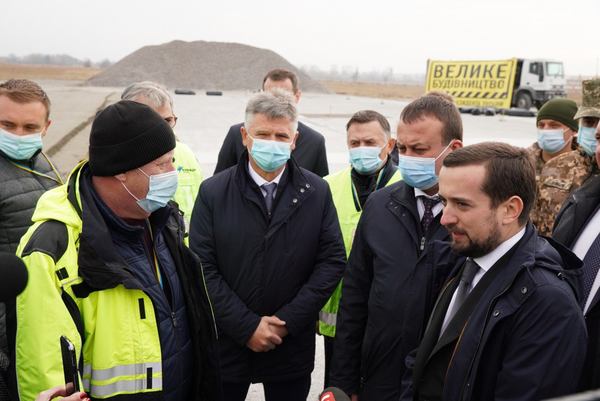
Что вообще происходит в сфере противодействия коррупции накануне публикации отчета о выполнении Украиной критериев для вступления в ЕС? Зачем в дело, которое расследовало НАБУ, вмешалась областная полиция? Почему НАБУ так медленно расследует дело? Определены ли убытки, которые нанес государству Резниченко и связанные с ним лица? Насколько длинным и влиятельным может оказаться список фигурантов этого дела, если НАБУ и САП удастся эффективно противостоять давлению из властных кабинетов?
Чтобы найти ответы на эти вопросы, журналисты издания сделали запросы в антикоррупционные и правоохранительные органы, пообщались с источниками во властных кабинетах, а также задали вопросы представителям ряда государственных органов.
Короткая история о почти большой удаче
2 ноября 2022 года Главное управление национальной полиции в Днепропетровской области открыло уголовное дело против «должностных лиц Днепропетровской областной военной администрации». В уголовном производстве было две статьи — о злоупотреблении властью и служебным положением и об отмывании доходов, полученных преступным путем.
Казалось бы, ничего удивительного, если бы не одно «но». Дело, которым начала заниматься днепровская полиция, касалось главы Днепропетровской областной военной администрации Валентина Резниченко и более чем полутора миллиардов бюджетных средств. И было подследственно не Нацполиции, а НАБУ, которое в то время уже проводило расследование по этому факту.
Кейс бережного обустройства дорог Днепропетровщины известен всем, кто хоть немного читал новости в ноябре прошлого года. Начался он еще в 2021 году, когда издание «Наші гроші» впервые опубликовало историю о блестящем взлете ООО «Будинвест инжиниринг», которое ловко забирало в области один тендер за другим и стало одним из любимцев Государственного агентства автомобильных дорог (Укравтодора).
Журналисты «Наших денег» оказались настойчивыми и упрямыми и дальше следили за деятельностью компании. И ровно через год, когда Вооруженные силы Украины уже освободили от российской армии Киевскую область и осталось чуть больше месяца до новостей об освобождении оккупированной Харьковщины, издание опубликовало продолжение истории со «Будинвест инжиниринг».
Новые данные, на которые обратили внимание «Наші гроші», свидетельствовали о том, что в период с мая по июль 2022 года ООО «Стройинвест инжиниринг» получило от Департамента жилищно-коммунального хозяйства (ЖКХ) и строительства Днепропетровской ОГА 1,2 млрд грн. Часть заключенных договоров не опубликована на сайте закупок «Прозорро». О том, какие дороги ремонтировали во время военного положения в прифронтовой области, тоже нельзя узнать.
После этого расследования между компанией и Госказначейством не было операций, однако в середине сентября прошлого года они возобновились. Пока 2 ноября СМИ не опубликовали два расследования, в которых речь шла о тех же людях: главе Днепропетровской ОГА Валентине Резниченко и его вероятной подруге Яне Хланте, которая и была владелицей компании «Стройинвест инжиниринг». Историю владельцев этого ООО также стоит напомнить.

Компанию «Будінвест інжиніринг» основала в 2017 году Ирина Воробьева. По большому совпадению, в этом же году Валентин Резниченко впервые возглавил Днепропетровскую ОГА. Советником Резниченко был его давний знакомый Юрий Голик. И если через восемь лет Валентин Резниченко остался главой Днепропетровской ОГА (с началом полномасштабного вторжения областные государственные администрации указом президента трансформировались в областные военные администрации), хотя уже и при каденции другого президента, пережив одно увольнение, то судьба его помощника сложилась иначе.
Юрий Голик после президентских выборов 2019 года стал консультантом (он не занимал государственных должностей и не был государственным служащим) президентской программы «Большое строительство». До начала полномасштабного российского вторжения программа реализовывалась за бюджетные средства и охватывала реконструкцию дорог, школ и садиков на миллиарды бюджетных средств. Чем именно занимался верховный консультант Голик, стало понятно чуть позже.
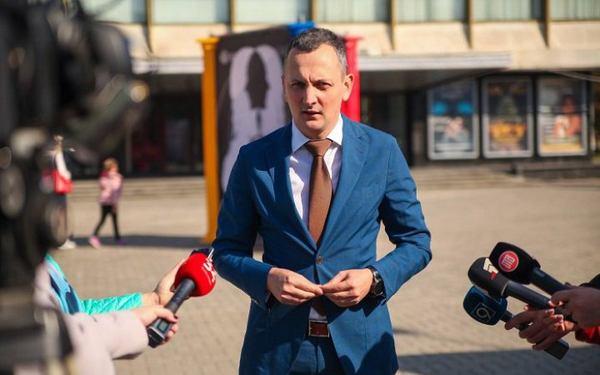
Игра в наперстки
Очевидно, отреагировав на расследование журналистов «Наших грошей» о выигранных ООО «Будинвест инжиниринг» тендерах на ремонт дорог в Днепропетровской области на сумму более 1,5 млрд грн, НАБУ и САП открыли уголовное производство. Дело имело предварительную квалификацию по статьям 364 (злоупотребление властью и служебным положением) и 209 (отмывание доходов) Уголовного кодекса Украины. Но через некоторое время свой незаконный дубль открывает Нацпол.
Для чего полиция открыла дело, когда знала: если в истории фигурирует 1,5 млрд грн — это точно сфера расследования НАБУ, ведь подследственность производств последней стартует от 30 тыс. долл. Почему дело открыли 2 ноября 2022 года, когда медиа опубликовали подтверждение того, что Валентин Резниченко и Яна Хланта тесно общаются? Куда спешили? И кто посоветовал сразу провести обыски в Днепропетровской ОГА, чтобы изъять оригиналы документов, которые потом хотели уничтожить?
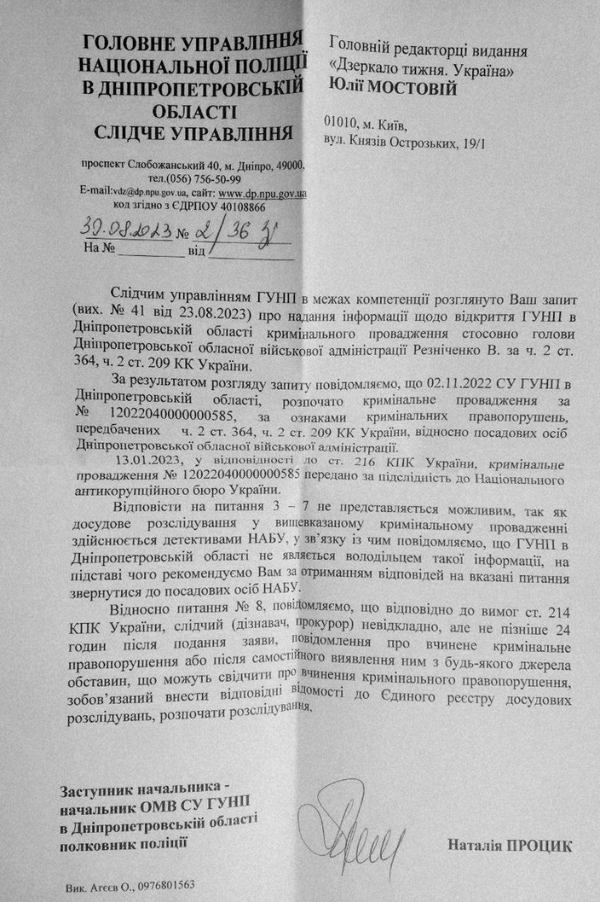
ZN.UA направило информационный запрос в полицию Днепропетровской области с просьбой объяснить, почему случилось так, что она расследовала неподследственное ей дело. И Нацпол Днепра ответил, сухо констатировав, что в январе 2023 года дело передали в НАБУ. Но ведь выигранного времени не упустили. Из собственных источников редакции стало известно, что полиция Днепропетровской области хотела провести почерковедческую экспертизу документов, которые Нацпол изъял у Днепропетровской ОГА и ООО «Стройинвест инжиниринг». Эти документы якобы подтверждали связь главы Днепропетровской ОГА Валентина Резниченко с компанией «Стройинвест инжиниринг». После экспертизы правоохранители намеревались уничтожить все оригиналы документов. Однако этого сделать не удалось. Антикоррупционные органы спасли документы.
Кстати, в сентябре этого года генерала полиции третьего ранга Анатолия Щадило, который на тот момент возглавлял Главное управление Нацполиции в Днепропетровской области, перевели в Киев. На повышение.
Расследование есть, подозрений нет
Год назад экс-руководитель главного подразделения детективов НАБУ Андрей Калужинский в интервью ZN.UA по поводу производства о дорожной истории в Днепропетровской области, которое зарегистрировало САП, пояснил: «Одно дело — доказать по стандартам условного журналистского расследования, сформулировать какие-то представления о тех или иных обстоятельствах у общества.
Совсем другое — довести до того, чтобы сначала сообщить о подозрении, а потом суд вынес соответствующий приговор». К сожалению, после того, как директором НАБУ стал Семен Кривонос, Андрей Калужинский больше там не работает. Как и целый ряд профессиональных детективов, которые покинули бюро. Вряд ли сейчас можно точно сказать, как этот факт повлияет на расследование интересующего нас дела, однако предположить, что такая стремительная текучесть кадров в ключевом антикоррупционном органе — плохой сигнал, можно уже сейчас.
А расследование действительно, как сообщают источники, происходит медленно.
За год были дважды проведены обыски в доме Юрия Голика: сначала в городке «Конек» (тогда же детективы пришли с обысками и к бывшему главе Днепропетровской ОГА Валентину Резниченко). Во время второго обыска у Голика НАБУ изъяло у него телефон. По информации источников в офисе президента, адвокаты Юрия Голика пытаются вернуть гаджет. Также на Банковой уверены, что в производстве совсем не фигурирует Кирилл Тимошенко, который до полномасштабного вторжения был куратором «Большого строительства». Хотя его причастность к тендерам в Днепропетровской ОГА детективы также проверяют.
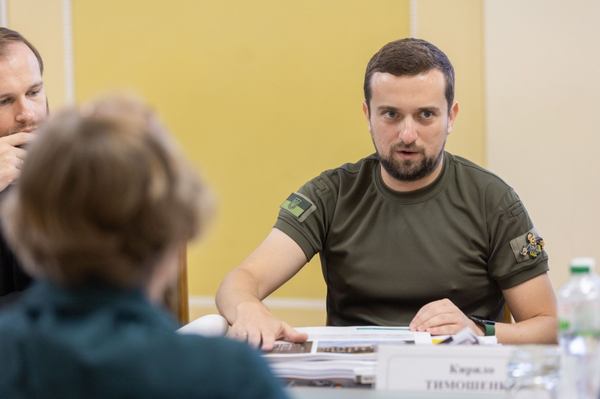
Что касается официальной позиции следствия, то ZN.UA обратилось в Национальное антикоррупционное бюро с вопросом: действительно ли в производстве сейчас нет Тимошенко? И есть ли там хотя бы кто-то, кто фигурировал в заголовках медиа по этой истории год назад? В НАБУ ответили, что пока идет расследование, говорить они ничего не могут. Очевидным в ответе антикоррупционного бюро является одно — расследование продолжается, а до подозрений еще далеко.
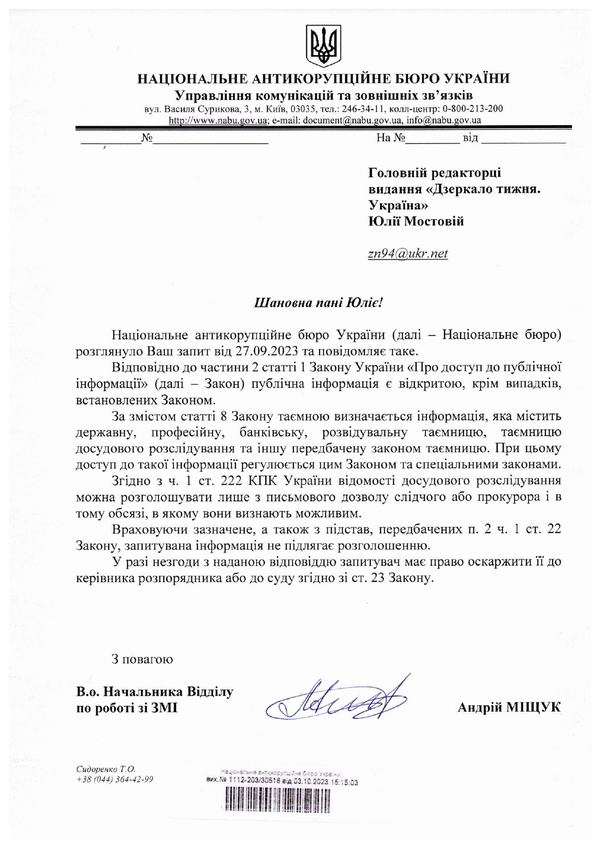
Впрочем, из собственных источников нам удалось узнать, что в производстве сейчас — несколько эпизодов. Часть из них касается ремонта дорог в Днепропетровской области. К тому же антикоррупционные органы расследуют факты незаконного обогащения и недостоверного декларирования сотрудников Днепропетровской ОГА. Также НАБУ и САП проверяют по меньшей мере 11 фирм, которые были контрагентами компании «Стройинвест инжиниринг». Речь идет о проверке движения средств компаний и то, как они между собой связаны. Часть этих фирм также проверяют на предмет того, связаны ли они с сотрудниками Днепропетровской ОГА.
Экспертиза и аудит, или рука руку моет
Едва ли не самый главный вопрос, над которым работают в НАБУ, как свидетельствуют источники, — это доказательство убытков. И пока у бюро нет собственного экспертного учреждения для проведения этих самых экспертиз, что значительно ускорило бы продвижение в большом количестве уголовных производств, антикоррупционным органам приходится «отстаивать» очереди, чтобы получить результат нужной им экспертизы. Но если бы дело было только в очереди.
Во-первых, как всегда, на результат экспертизы влияет глава Киевского научно-исследовательского института судебных экспертиз Александр Рувин. О том, как именно влияет, рассказано и написано достаточно.
Во-вторых, в этом деле есть и другие обстоятельства, которые мешают даже не самому доказыванию убытков, а этапу, который этому предшествует.
Дело в позиции Государственной аудиторской службы Украины. Здесь внимательно. Для того, чтобы НАБУ провело экспертизу убытков по делу, бюро нужно провести аудит расходов на ремонт дорог, на которые выделял деньги департамент ЖКХ Днепропетровской ОГА. Этот аудит осуществляет Государственная аудиторская служба. Именно это ведомство проверяет, насколько эффективно расходуются бюджетные средства. Согласитесь, вполне нужная проверка.
И такой аудит в деле начался. Процедура аудита в делах НАБУ от Госаудитслужбы выглядит так: эксперт во время досудебного расследования совместно со следствием работает над материалами, которые ему необходимо проанализировать. Фактически человек из аудиторской службы непосредственно ознакомлен с материалами следствия. И когда аудит по делу Днепропетровской ОГА и компании «Стройинвест инжиниринг» был осуществлен, а человек из Госаудитслужбы, который его проводил, нашел убытки и должен был написать заключение, начали происходить странные вещи. Госаудитслужба начала затягивать предоставление следствию заключения, которое было нужно НАБУ для дальнейшей работы и проведения экспертизы, которая должна была подытожить досудебное расследование.
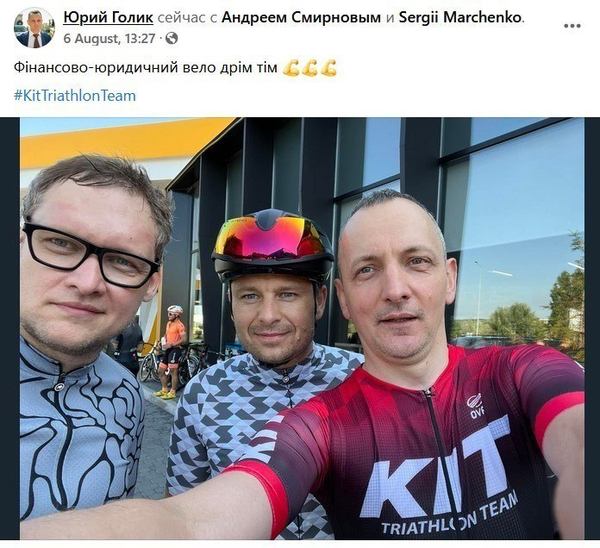
Эту информацию можно трактовать и оценивать по-разному. Но есть весомый факт, который невозможно не учитывать: юридически Государственная аудиторская служба прямо подчинена Министерству финансов Украины, глава которого Сергей Марченко является спортивным партнером и хорошим другом Юрия Голика.
То есть представьте ситуацию: правоохранители расследуют производство относительно возможных противоправных действий Голика, а аудит вместе со всеми собранными материалами досудебного расследования, необходимый для проведения дальнейших экспертиз, находится в работе в ведомстве, подчиненном его товарищу. Это разве не конфликт интересов? И кто здесь может взять «самоотвод»?
Однако фактор друга из Минфина, который, скорее всего, играет в этом деле роль кнопки для людей более высокопоставленных, — это еще не все.
Институциональная фишка «ГосдорНИИ»
История Днепропетровской ОВА и компании «Стройинвест инжиниринг» крутится вокруг того, проводили ли ремонт дорог, на которые департамент ЖКХ выделял средства, по завышенным ценам. Если да, то компания нанесла государству ущерб. Но эти убытки, если они есть, надо доказать. В Украине работает государственное предприятие «Государственный дорожный научно-исследовательский институт имени М.Шульгина» (ГП «ГосдорНИИ»), которое собирает информацию о ценах на строительные материалы из всех областей. То есть это одна большая база различных товаров строительного спектра. Институт, кстати, подчиняется Укравтодору.
Журналисты и эксперты, которые работают с базой данных «ГосдорНИИ», говорят о том, что поставщики различных строительных материалов могут предоставлять госпредприятию цены с определенной накруткой. Например, если есть фирма, продающая цемент для строительства или ремонта дорог, и эта фирма дружит с кем-то из сотрудников, которые работают в ОГА и ответственны за проведение тендеров, то информация в «ГосдорНИИ» гарантированно будет искажена, то есть цена завышена.
И если эту цену опубликуют в базе «ГосдорНИИ», то получится как бы эффект снежного кома, где фиктивно завышенная цена станет нормой и дальше другие поставщики начнут брать ее за основу. То есть коррупция начинается уже на этапе формирования цены, а не так называемых откатов. И если договориться с поставщиком того же цемента, который может быть единственным в регионе, то можно завышать цену и она будет законной.
Заместитель директора по евроинтеграции ГП «ГосдорНИИ» Станислав Гвоздиков, к которому мы тоже обратились с вопросами, уверен, что утверждение о заложенных в базах «ГосдорНИИ» завышенных ценах не соответствуют действительности. По его словам, этот риск нивелирован методикой ценообразования дорожных работ, которая вступила в силу 17 октября прошлого года.
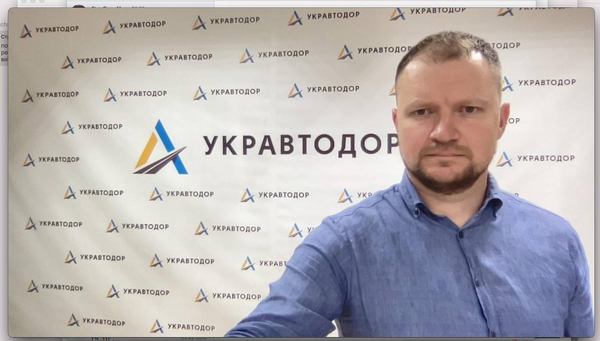
«Эта методика отражает общепринятые в мире практики закупок и формирования цен, — объясняет он, — Теперь стоимость материалов отделена от расходов на доставку. Применение методики позволяет заказчику осуществлять контроль над расходами на всех этапах проекта, от планирования до завершения работ. Службы агентства восстановления в областях и в отдельных случаях — облгосадминистрации при заказе проектной и сметной документации обязаны указать среди прочего источник информации о стоимости материалов и расстояние доставки».
И сейчас в подавляющем большинстве случаев, говорит Гвоздиков, источником информации о стоимости материалов является только база «ГосдорНИИ», которая формируется из многих источников информации, не только от поставщиков. Это приблизило стоимость материалов к уровню, который сложился на рынке сегодня, что в свою очередь способствует лучшему пониманию и контролю над реальной стоимостью проекта.
«Информация об отпускных ценах поступает от поставщиков сырья из карьеров, а именно в виде их коммерческих предложений, которые отдельно содержат информацию о стоимости доставки, — продолжает Станислав Гвоздиков, — Также наши аналитики из «ГосдорНИИ» берут исторические данные. Например, информацию из «Прозорро» по уже оплаченным выполненным контрактам и из тендерных предложений участников закупок. Кроме этого, у нас есть база действующих карьеров и мы самостоятельно их прозваниваем. Все источники информации можно просмотреть в нашей базе данных цен. Поставщик — это только один источник.
Когда мы высчитываем среднюю цену — мы считаем ее минимум из 4-5 источников, для объективности», — объясняет Станислав Гвоздиков и уверяет, что коррупционный фактор в завышении цен на этапах формирования ожидаемой стоимости заказчиком, заключения контракта и взаиморасчетов с подрядчиками за выполненные работы был полностью устранен в прошлом году благодаря внедрению методики.
Так ли это на самом деле? Наверное, это является поводом для отдельного расследования и материала. Но получается, что внедренная методика начала работать после того, как департамент ЖКХ Днепропетровской ОГА перечислил компании «Стройинвест инжиниринг» 1,5 млрд грн. И не были ли цены из контрактов «Прозорро» уже завышены по этой схеме?
Так есть ли перспектива у дела?
Темпы расследования дела не совпадают с нетерпеливыми ожиданиями общества на подозрения его вероятным фигурантам. Ожидания завышены, потому что история бьет в глаза и ослепляет простотой наглости. Конечно, никто из владельцев фамилий в громких заголовках новостей не виноват, пока суд не вынесет вердикт. Но мы пытались очертить линию горизонта, на которой, возможно, дело передадут в суд
То, кто в этой истории окажется сильнее — закон или властная «крыша», — будет еще одним сигналом того, что реально происходит у нас в антикоррупционном блоке. И кого за это нужно поблагодарить.


